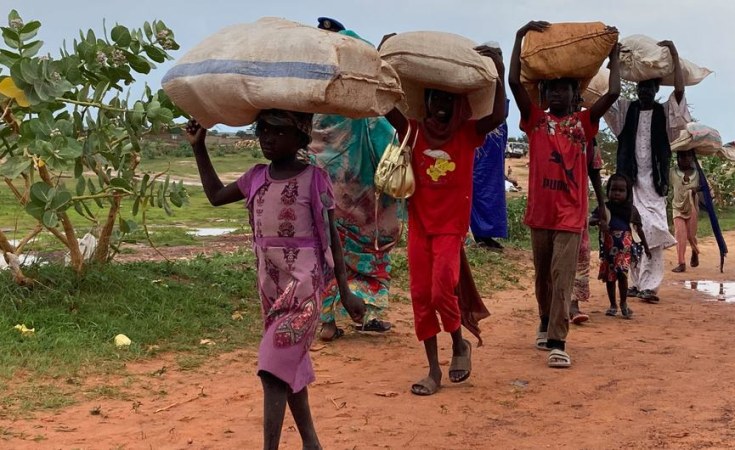Harare — Conflicting groups in Sudan have not agreed upon an instant ceasefire, indicating that violence would likely continue despite efforts by mediators to call for a ceasefire and humanitarian corridors, the East African reports.
The conclusion of the latest round of negotiations in Jeddah, Saudi Arabia, which was facilitated by the U.S., Saudi Arabia, and the Intergovernmental Authority on Development (IGAD), indicates that there is no assurance that the rival factions, the Sudan Armed Forces (SAF) and the Rapid Support Forces (RSF), will soon come to a peace agreement. However, the negotiations' co-facilitators claimed to have forced the parties to agree to reestablish direct communication and establish humanitarian corridors.
"As co-facilitators of the talks in Jeddah between the SAF and RSF, the Kingdom of Saudi Arabia, the IGAD, also participating on behalf of the African Union, and the United States are able to announce that the SAF and RSF have committed to take steps to facilitate increased humanitarian assistance, and to implement confidence-building measures (CBMs)," IGAD said in a statement.
Several independent conflict monitors report that since the battle between two once partnered groups began on April 15, at least 10,000 people have died and over 5 million have been forced to flee their homes. The UN demanded a ceasefire last Thursday, stating that the suffering of civilians had been worse over the previous six months.
The continuing conflict in Sudan, entrenched in global geopolitics and the historical legacy of the previous leadership of now-deposed President Omar al-Bashir, is increasingly being attributed to the climate emergency. The United Nations says about 65% of land in Sudan is affected by desertification, and NGO Practical Action working in Sudan's North Darfur State says human activities, like the more than 7 million who are fleeing fighting in the country, have taken a toll on natural resources and ecosystems, intensifying environmental degradation.
The United Nations Children's Fund says 19 million children in Sudan are out of school and the academic year starts with all schools closed due to impacts of the war, risking a generational catastrophe. More than 5.5 million people have been displaced since the war started. Sudan's Ministry of Health reports that more than 1,200 people have been killed and 8,396 injured due to the fighting. Only a third of the necessary funding for humanitarian provisions has been raised, according to the UN Office for the Coordination of Humanitarian Affairs.


